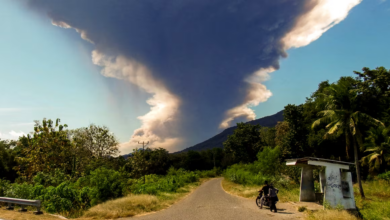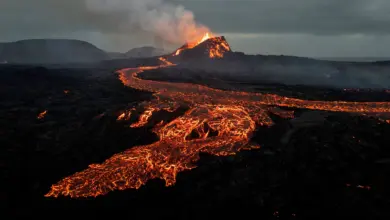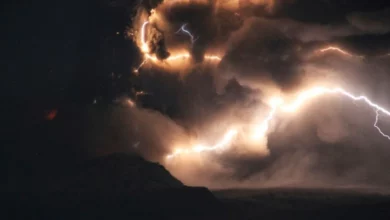An ash cloud from a volcano in Iceland has snarled international travel for a fourth straight day, leaving around 17,000 tourist stuck in Egypt, with expectations that the delays and cancellations might continue indefinitely. The situation has wrought chaos in the business travel sector and inconvenienced passengers all over the world.
For the last four days, airlines have canceled increasing number of flights–both local and international–to destinations around Europe. “The situation is very bad,” said Heba Samy, sales officer at Egypt Air’s foreign affairs office. “Most flights have been canceled.”
According to Samy, Egypt Air flights on Saturday to London, Brussels, Frankfurt, Düsseldorf, Berlin, Paris, Amsterdam, Milano, Vienna, Moscow, Munich, and Geneva were all canceled. One day earlier, flights to Frankfurt, Düsseldorf, Berlin, Paris, Amsterdam and London were likewise canceled. On Thursday, 15 April, only London- and Brussels-bound flights were canceled.
Icelandic officials have warned that the eruption could continue for days or even months. According to the European Organization for the Safety of Air Navigation, a total of 12,000 flights were canceled yesterday as a result of the phenomenon.
Meanwhile, a number of leading carriers–including Lufthansa, British Airlines, Swiss Air and Australia Airlines–have canceled many of their flights “until further notice,” according to Rita Joseph, assistant supervisor at the Thomas Cook travel agency’s e-business department.
A number of Egyptian airports saw widespread disruption of flights both to and from Europe, with numerous passengers left stranded in airport terminals. In total, 48 flights out of Cairo, Hurghada and Luxor airports have been canceled, most of them en route to European destinations.
Those in the industry complain that the crisis is causing significant financial losses to both airlines and local travel agencies.
“I was organizing a conference in Egypt, with full accommodations, for Dutch clients,” said Fwanda Mostafa, an aviation manager at the Cairo-based Nile Magic Travel Agency. “But everything was postponed and may be cancelled.” According to Mostafa, the last-minute cancellation cost the travel agency LE7000 in lost business.
And according to Ibrahim Manaa of the holding company for airports, the loss for airports in Egypt has reached US$600,000.
Airlines, however, which are expected to compensate for delays and cancellations, are likely to emerge as the biggest losers from the crisis.
EgyptAir announced that it has re-issued tickets free of charge for passengers with reservations on canceled flights. Alaa Ashour, president of the company, said that Egypt Air’s call center was working around the clock to respond to passenger inquiries.
On the other hand, accommodations must be paid for by passengers, Mostafa told Al-Masry Al-Youm.
The call center can be reached from a mobile phone at 1717 and from any landline at 0900 700000.
On the international level, meanwhile, a number of world leaders today canceled trips scheduled to Poland to attend the funeral of late President Lech Kaczynski–killed earlier this month in a plane crash, along with several leading members of his government–due to the preponderance of volcanic ash in the skies over northern Europe.
For travelers inside Europe, trains and ferries have proven relatively convenient alternatives to air travel. While the determined traveler could make it from Egypt to Europe by sea–to Madrid, Cyprus, Milan or Rome–then take a train to their final destination, this should only be done in the case of an emergency since trains are fully booked across the continent, according to CNN.
“I recommend that people stay away from Europe until things calm down because there is currently a lot of uncertainty,” said Mostafa.
Iceland’s volcanic eruption began on 20 March, beneath the Eyjafjallajokull glacier in the country’s south, blowing a hole in the ice. But things got worse this week, to the point of affecting European airspace. Although the ash cannot be easily seen in European skies, its tiny particles of rock, sand and glass can represent a serious threat to airplane engines.
Egypt




